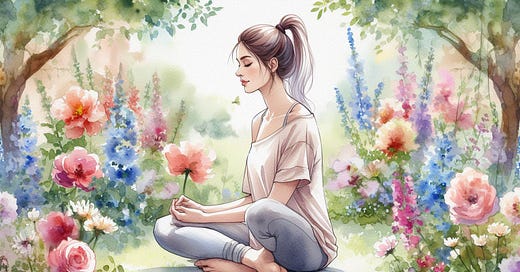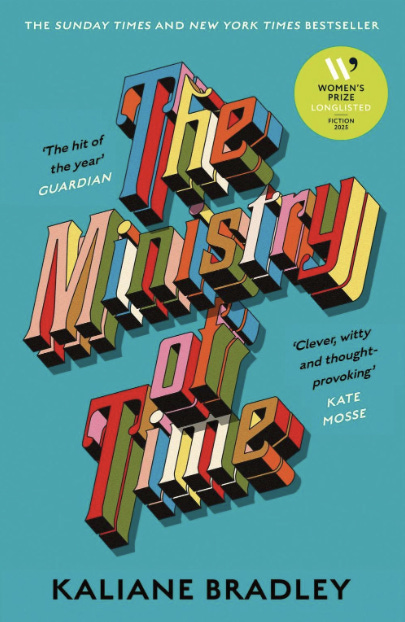Hi lovely reader 👋
First of all, if you're new here, my name is Sophie. I’m on a journey to slow down, reconnect with nature, and live more intentionally. I moved off-grid and now I’m sharing lessons on rewilding, simplicity, and finding balance in a busy world, without any of the fluff.
Join my newsletter if you're also a busy human in need of some balance.
“Your vision will become clear only when you can look into your own heart. Who looks outside, dreams; who looks inside, awakes.”
— Carl Jung
A couple of years ago, I really got into meditation.
Like every self-respecting, overachieving perfectionist, I decided the only way to truly grasp meditation was to do several Vipassana meditation courses.
If you’ve never heard of these, Vipassana is a meditation technique taught through 10-day courses. To say the courses are “full-on” is an understatement. During those 10 days, the students don’t speak, don’t interact with each other, and meditate 10 hours a day.
While tough, the courses were life-changing.
Over the course of two years, I practised every day, went back for two more 10-day courses, several shorter courses, and also served on one course.
Right now, I don’t meditate every day anymore, but I practise living intentionally and being in the moment. The effects of the 10-day courses still reverberate through my life, and because of this, I find it much easier to bring awareness to the present moment.
Out here, in my little cabin in the woods, there are many opportunities to be still, to be aware of the moment.
I’d say you don’t have to live out in the native New Zealand bush, but it sure makes things easier. This morning, while heating up some water for my cup of tea, a little fantail came to greet me. I took a moment to observe this little bird in all its beauty, observing its movements and happy little chirps.
There you have it: one minute of mindfulness to start the day, done and dusted.
What I want to discuss is spirituality, in all its different forms, and how it can have a profound impact on our lives.
What is spirituality really?
There are so many definitions of spirituality out there. It’s hard to choose one.
People often think about religion when they hear the word spirituality.
However, the Oxford Dictionary defines it as the quality of being concerned with the human spirit or soul as opposed to material or physical things. No mention of religion.
It’s safe to say the definition has evolved from initially mostly focusing on religion, to now include other elements such as values and purpose.
In the handbook of positive psychology, one definition of spirituality that stands out (for me) is this one: Spirituality can be defined generally as an individual’s search for ultimate or sacred meaning, and purpose in life. This can include religion and faith, but can also be through other means such as connections with nature and personal development.
Carl Jung and his thoughts on spirituality
Carl Jung talks about the dark night of the soul, a spiritual crisis. He says it happens when we rely too much on the modern materialistic world, and this can never lead to happiness.
He talks about two stages of life. In the first one, we focus on the outer world, daily life, and working hard. But this stage causes conflict within ourselves. We become confronted with real-life crises and problems.
According to Jung, the solution is to search for the soul, i.e., to embrace spirituality. This is what he calls the second stage in life, where we focus more on our inner life and become individuals who are not afraid to stand against the crowd. This would bring us tranquillity; it would mean our lives become whole.
Why is it important to be more spiritual?
While Jung told us almost 100 years ago how important it is to live a spiritual life, science is only now catching up.
Research has shown that a loss of spirituality goes hand in hand with an increase in mental health issues such as depression and addiction.
Myrna Weissman conducted a 30-year study of 3 generations at risk of depression. Her study showed that between the ages of 16 and 26, there is a time of confusion and depression. If people responded to this confusion in a spiritual way they discovered their own deeper nature and that of reality. This, in turn, allowed them to contribute to life in a way more aligned with their internal values (as such, avoiding further depression).
Lisa Miller from the Spirituality Mind Body Institute also found elevated rates of addiction, depression and suicide were linked to the decline of personal spiritual life. Scientists have shown spiritual experiences have an impact on the brain in such a way that they protect it from future mental health issues.
She explains the underlying mechanics: a spiritual experience allows us to feel connected, guided and never alone. Because of this, we are more protected from depressive episodes.
I can personally attest to this. In many ways the meditation courses I did years ago were the catalyst that set me on my way to start living a life more in line with my values. Before I discovered meditation, I struggled on and off with mental health issues. Since then, I feel much more able to deal with the ups and downs of life.
Ways we can all be a bit more spiritual
I’d like to end this newsletter with a few actionable tips on how to incorporate what you’ve read into your daily life.
But before I do, I want to impart this little nugget of knowledge from Carl Jung:
He is saying that a spiritual journey, a search for the soul, is inherently individual and lonely.
There is only one way to your soul, and that is your own way.
That being said, here are a few tips I have tried and worked for me:
Meditation: Please don’t think you have to do a rigorous 10-day course. In fact, I wouldn’t recommend it to beginner meditators, but that’s another story. There are so many guided videos out there on YouTube and plenty of really good apps offering free trials. Meditation doesn’t have to be complicated to give you a little boost in your everyday life
Introspective work such as journaling and writing. Techniques such as “stream of consciousness” writing can be particularly helpful to uncover what’s really going on inside you.
Creative work: painting, writing, drawing, colouring. Anything that gets those creative juices flowing is an enrichment for our soul
Connecting with nature: I don’t just mean going for a nice hike, instead I’m talking about truly experiencing and appreciating the beauty of nature around you. Spending time observing and connecting with what’s around us.
There are so many more ways of spiritual practice, including faith in all its forms, prayer, and connecting with a higher power. Other practices, such as fasting or deprivation, are also well known.
As mentioned, the only way that will work for you is when you fully embrace yourself and do things your way.
Something that inspired me this week:
I really enjoyed this book, by Kaliane Bradley:
I’ll just give you the blurb so you know what it’s about. It’s such a good read, highly recommend it. One of those books you finish in one go on a rainy Sunday afternoon.
A civil servant is offered a lucrative job in a mysterious new government ministry gathering 'expats' from across history to test whether time-travel is feasible.
Her role is to work as a 'bridge': living with, supporting and monitoring expat '1847' - Commander Graham Gore, a former Victorian polar explorer. Gore, an adventurer by trade, soon adjusts to this bizarre new world of washing machines, feminism and Spotify; and during a long, sultry summer the pair move from awkwardness to friendship to something more.
But as the true shape of the project that brought them together begins to emerge, Gore and the bridge are forced to confront their past choices and imagined futures. Can love triumph over the histories that have shaped them? And how do you defy that history when it is living in your house?
This Is Sophie Today is a reader-supported publication and while all posts are free, I need your support to keep this going. If you’re enjoying what you’re reading, consider picking up a paid subscription. A monthly subscription is 5 NZD or 2.8 USD and a yearly subscription is 45 NZD or 25 USD.










You're right, meditation can really help with most of life's struggles. Plus, like you said, there's a lot of science to back it up. Even psych therapists are recommending mindfulness and meditation these days! It's a pleasure to connect with you!
I started meditating this year Sophie and it has helped me to go through this phase of my life.
I can only say I should have started earlier. But now that I see clearly the benefits I won’t stop.
You’re right about embracing spirituality and I can say it is different from person to person. We are different and as Jung says we are seeking answers within ourselves and not outside of ourselves.